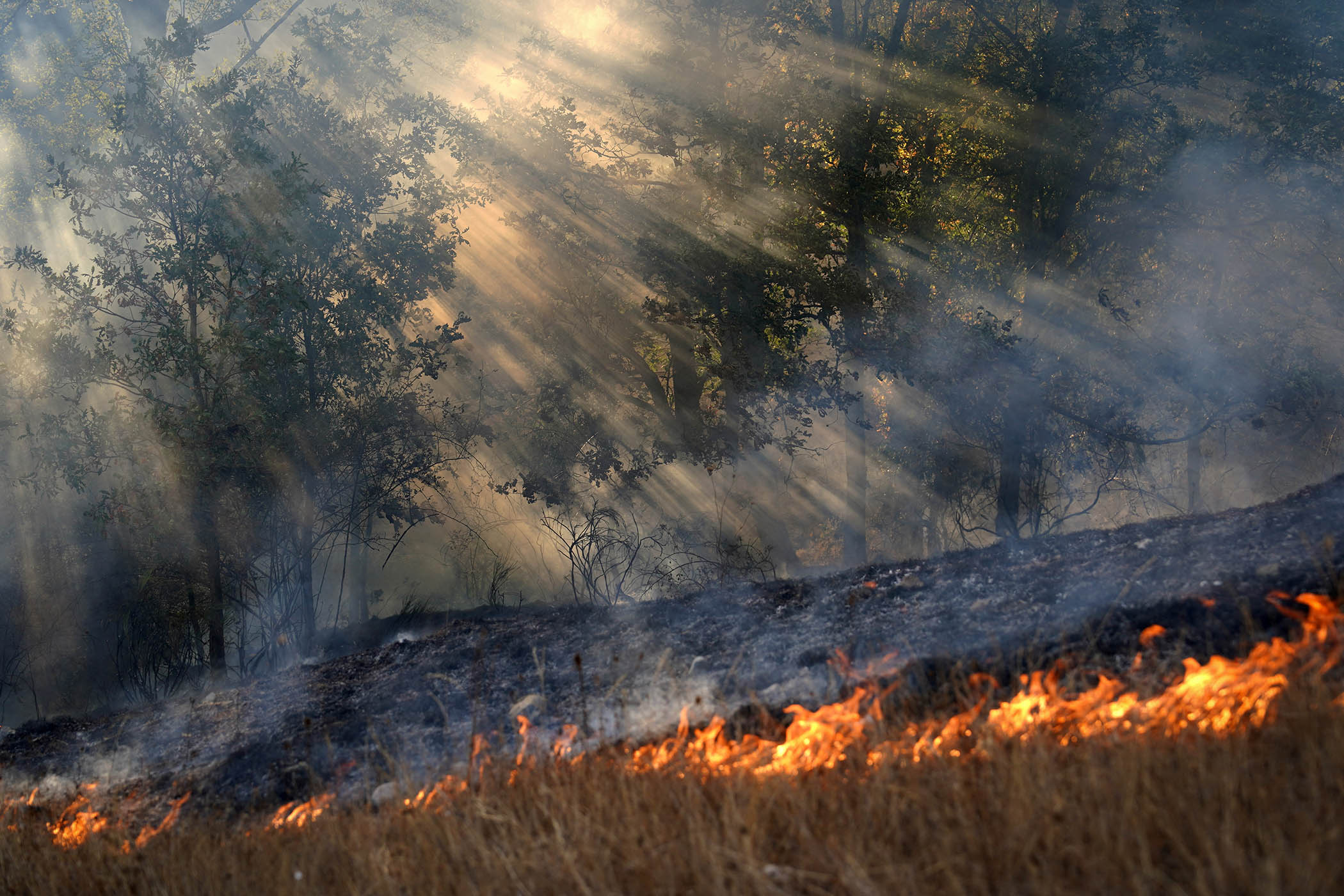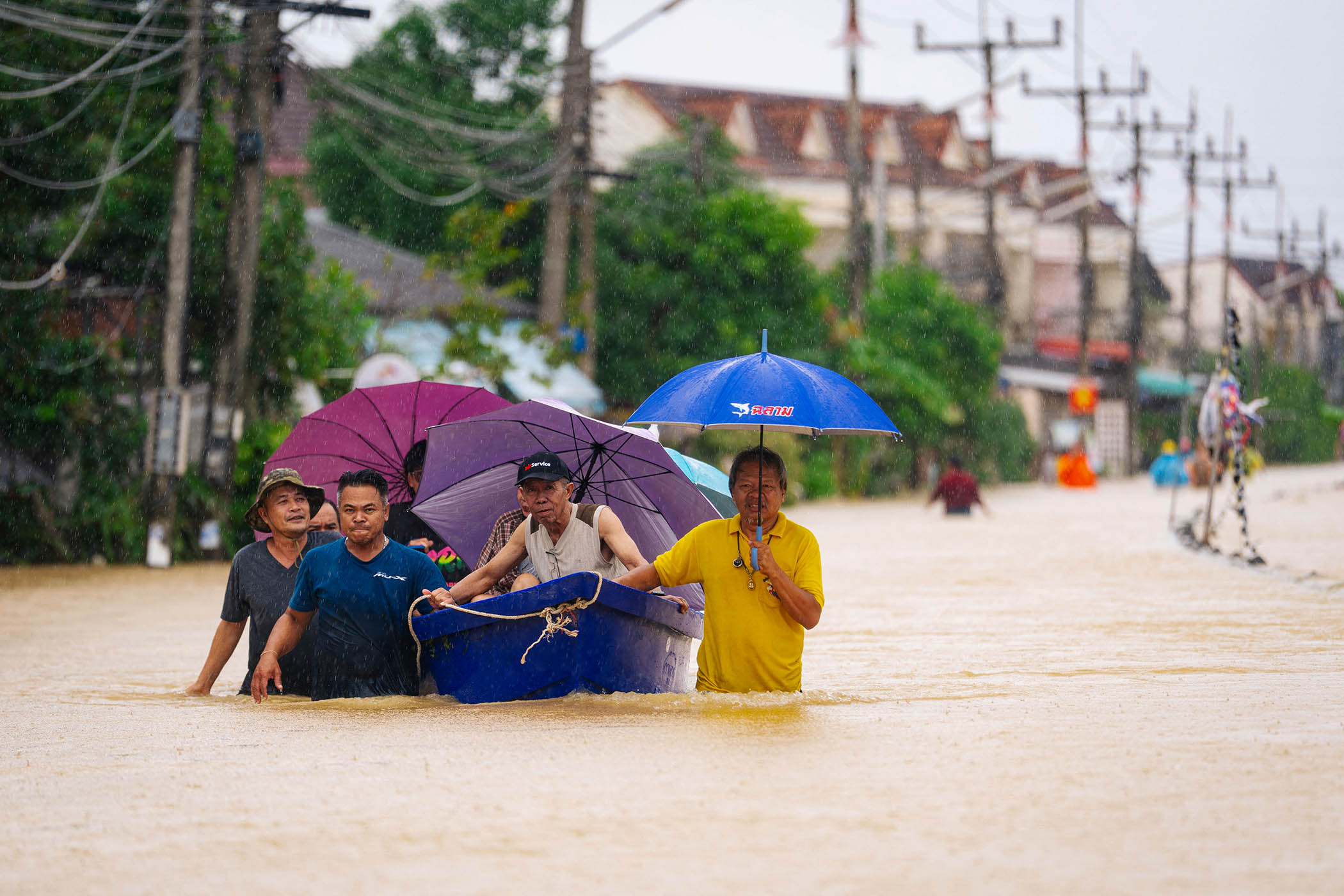As the world prepares to gather in Belém, Brazil, for Cop30, we appeal to all heads of state and government representatives attending: let this be the moment when the world finally unites around a plan to transition away from fossil fuels within the next two decades. The responsible approach, the only moral and economic choice, is to start that transition immediately. Cop30 must be the place where the world’s nations agree on concrete, collective steps to phase out the burning of coal, oil, and gas and build the clean energy future that is already within reach.
The science is unambiguous, and the consequences are visible everywhere: devastating floods, heatwaves, fires and droughts are erasing decades of progress in development and social justice. The planetary emergency is not a distant threat — it is a direct attack on the world’s hard-won goals of eradicating poverty, ending hunger, protecting the environment and ensuring peace and stability. Every tonne of carbon emitted deepens inequality and undermines the foundations of human progress. No nation, no matter how wealthy or isolated, is immune.
Development and fossil fuels were once intertwined, but today that link is broken. Continuing to rely on fossil fuels no longer brings prosperity — it brings destruction. It erodes food security, drives migration, increases health costs and inflames conflicts. Around the world, communities that have contributed least to the problem are suffering the most from its effects. That is neither just nor sustainable. The only way to secure a stable and peaceful century is to phase out the burning of fossil fuels and replace them with clean, renewable and equitable sources of energy.
We also recognise the real challenges of getting there, particularly in developing nations where energy demand continues to rise and fossil fuels still underpin many economies. Leaders of nations across Latin America, Asia and Africa face intense pressures over oil expansion. This makes global solidarity and strong support essential for a just and achievable transition.
This transition is not a burden — it is an opportunity of historic proportions. The cost of renewable energy has plummeted over the past decade. Solar and wind power are now the cheapest sources of new electricity in most countries. Clean technologies like electric mobility, energy storage, green hydrogen and smart grids are advancing faster than anyone predicted. Across Africa, Asia, Latin America and beyond, distributed solar systems and mini-grids are bringing electricity to people who never had it before — quickly, affordably and without pollution. In cities and rural areas alike, these technologies are creating jobs, improving health, and giving communities control over their own energy futures.
Related articles:
Business leaders already understand this. Investments in renewable energy, green infrastructure and sustainable industries are not just ethical choices; they are the most rational economic ones. Clean energy industries are creating millions of new jobs, stimulating innovation and strengthening energy independence. Renewables are also inherently more secure for nations that currently rely on imported fossil fuels, reducing vulnerability to price shocks and geopolitical disruption. By contrast, fossil fuels expose countries to volatile prices, geopolitical instability, and stranded assets. The clean transition is, in every sense, the pathway to economic resilience and prosperity.
Addressing these challenges demands a major lift in climate and transition finance. Without it, the world’s most vulnerable nations cannot move at the speed required. We also recognize that this transition must be fair and inclusive. Workers, communities and developing nations that currently depend on fossil fuel economies deserve support and partnership to diversify and thrive. This requires international cooperation, not competition — coordination, not isolation. The task before us is vast, but the cost of inaction is immeasurably greater.
This is why Cop30 is so crucial. Three decades after the Rio Earth Summit first placed sustainable development at the center of global diplomacy, and 10 years after the Paris Agreement on climate change, the world returns to Brazil facing an existential challenge. Belém offers a symbolic and practical opportunity to realign global ambition with planetary reality. Leaders must arrive ready to go beyond words and targets. They must commit to a clear, coordinated plan to phase out fossil fuels within the next 20 years, with measurable milestones and accountability.
The tools are in our hands. The economics are on our side. The moral case is undeniable. What is needed now is courage and unity. The world has shown before that when faced with a global challenge, we can act together — to end wars, cure diseases, and rebuild after crises. This is one of those moments.
As you and representatives from your governments gather in Brazil, you have a chance to show future generations that you rose to meet the defining test of our time. The path away from fossil fuels is not one of sacrifice, but of renewal — of cleaner air, healthier people, more secure societies, and flourishing economies.
With respect and admiration,
The Planetary Guardians and co-signers:
Hindou Oumarou Ibrahim, chair of the Planetary Guardians, chair of the UN Permanent Forum on Indigenous Issues, president of AFPAT;
Paul Polman, co-Vice chair of the Planetary Guardians, Business leader, co-founder of Imagine, co-author of Net Positive;
Former president Juan Manuel Santos, co-vice chair of the Planetary Guardians, former president of Colombia, Nobel Peace Laureate, chair of The Elders;
Ayisha Siddiqa, Climate and human-rights advocate, JD Candidate, UCLA Law, founder and executive director of Future Generations Tribunal;
Dr Carlos Nobre, Earth System Scientist, advocate for the Amazon Rainforest, co-chair of the Science Panel for the Amazon;
Christiana Figueres, Costa Rican diplomat, architect of the Paris Agreement, co-founder of Global Optimism and chair of the Earthshot Prize Board of Trustees;
David Suzuki, Canadian scientist, broadcaster and author, co-founder of the David Suzuki Foundation;
Farwiza Farhan, Indonesian conservation leader, founder of HAkA protecting the Leuser Ecosystem, 2024 Ramon Magsaysay Awardee;
Hiro Mizuno, sustainable finance leader, former CIO of Japan’s GPIF, special advisor to MSCI CEO, former UN Special Envoy on Innovative Finance;
Dr Mamphela Ramphele, South African medical doctor and activist, co-founder of ReimagineSA, former co-president of the Club of Rome [2018–2023] ;
Mary Robinson, former president of Ireland and former UN High Commissioner for Human Rights, former chair of The Elders (2018–2024) and current Elder;
Naoko Ishii, sustainability leader and economist, director of the Center for Global Commons and special presidential envoy for Global Commons, University of Tokyo; former CEO/chair of the Global Environment Facility;
Dr Omar Yaghi, 2025 Nobel Laureate in Chemistry, the James and Neeltje Tretter Professor of Chemistry at UC Berkeley and a Senior Faculty Scientist at Lawrence Berkeley National Laboratory;
Dr. Ralph Chami, financial economist, co-founder of Blue Green Future and Rebalance Earth, pioneer of “Science-Based Finance”;
Sunita Narain, environmentalist and author, director general of the Centre for Science and environment and editor of Down To Earth;
Dr. Sylvia Earle, oceanographer, explorer, author, National Geographic Explorer at large, president and chair of Mission Blue;
Wade Davis, cultural anthropologist and author, professor of Anthropology and BC Leadership Chair at the University of British Columbia;
Xiye Bastida, indigenous climate activist, co-founder and executive director of Re-Earth Initiative;
Bertrand Piccard, Solar Impulse, Ocean Elder
Ester Baiget, president & CEO, Novonesis;
Lord Fakafanua, Speaker of the House, Kingdom of Tonga
Graeme Kelleher, Ocean Elder, former chairman and CEO, Great Barrier Reef Marine Park Authority;
Graça Machel: women’s and children’s rights advocate; former freedom fighter and first education minister of Mozambique, co-founder and deputy chair of The Elders.
Gro Harlem Brundtland: first woman prime minister of Norway; former director-general of the World Health Organization, founding member of The Elders;
Jean-Michel Cousteau, Ocean Elder, Ocean Futures Society President and CEO
Jesper Brodin, CEO Ingka Group | IKEA and chair of B Team;
Dr Johan Rockström, director of the Potsdam Institute for Climate Impact Research
Lavinia Currier, Ocean Elder and filmmaker;
Dr Mo Ibrahim, Ocean Elder and founder & chair, Mo Ibrahim Foundation;
Her Majesty Queen Noor of Jordan, Ocean Elder;
Dr Rita Colwell, Ocean Elder and distinguished University professor;
Sven Lindblad, Ocean Elder and founder of Lindblad Expeditions
Tommy Remengesau, Jr, Ocean Elder, former president of Palau
Photograph by Cesar Manso/AFP via Getty Images


